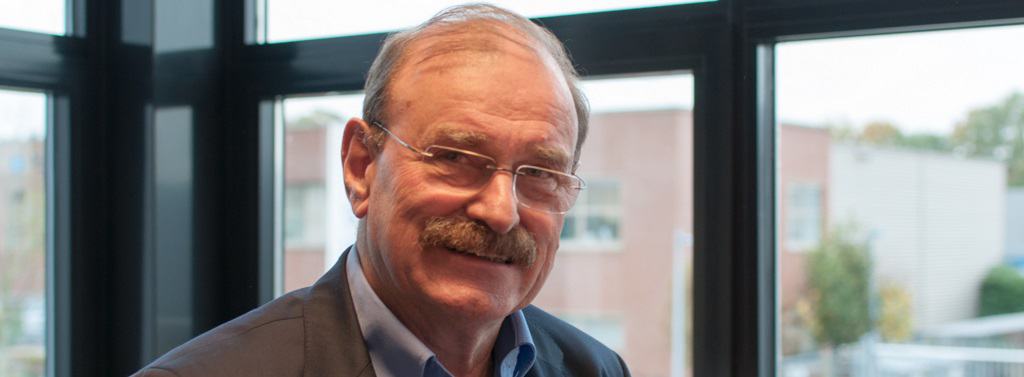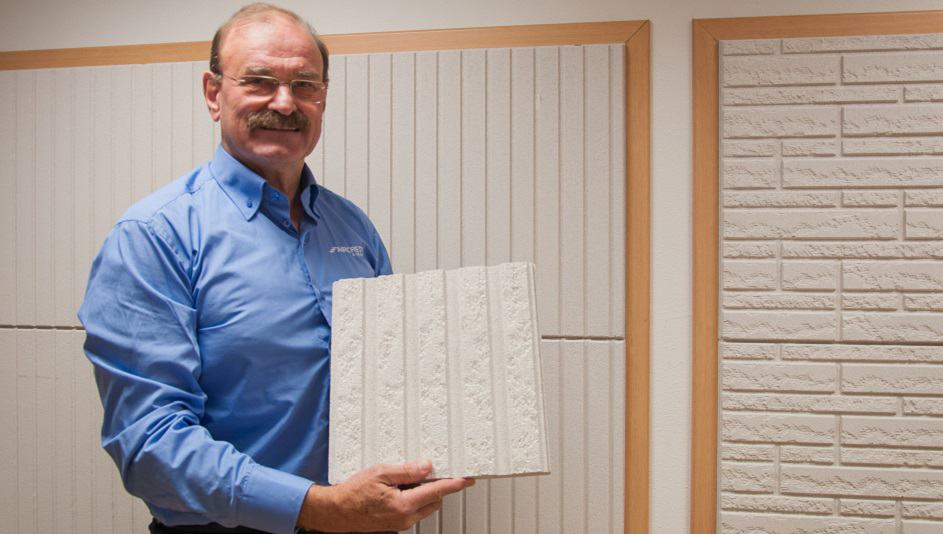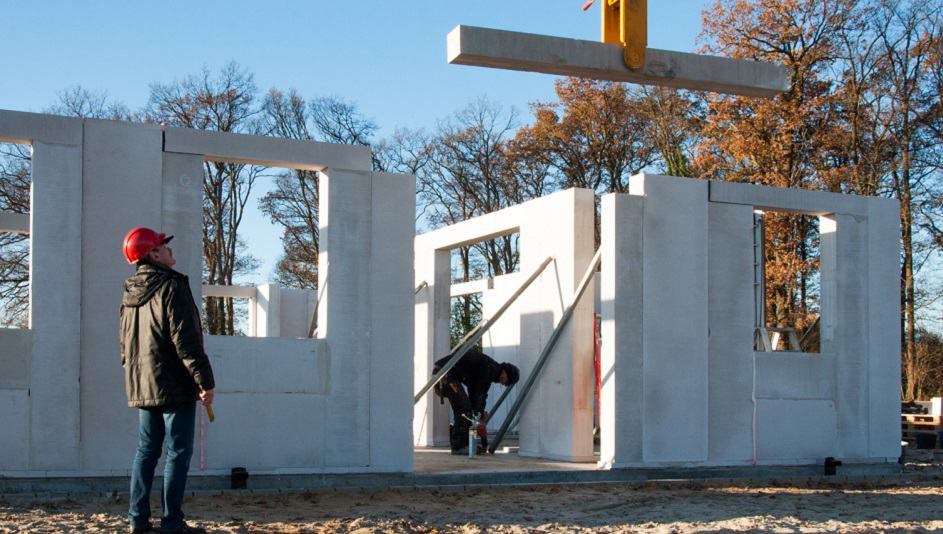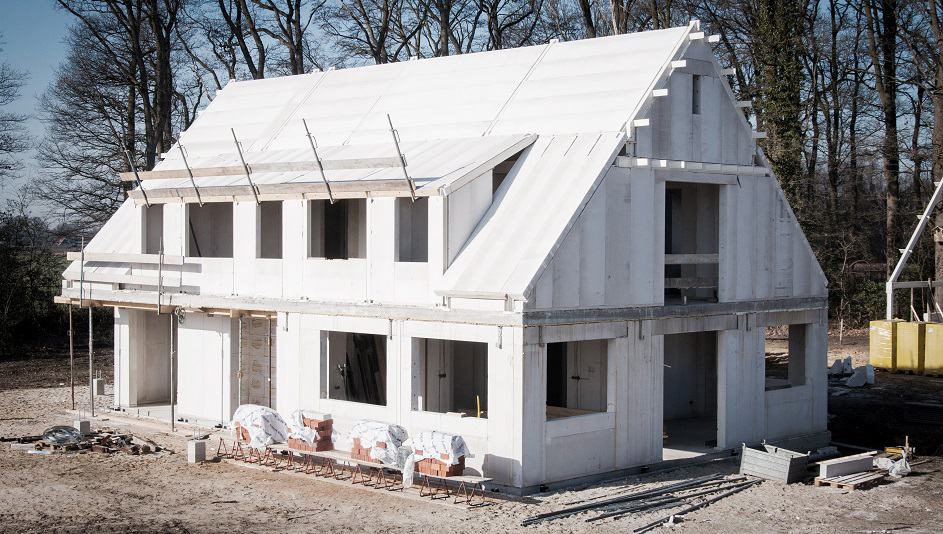Willem van Boggelen, the founder of Aircrete Europe, is an industry innovator and well recognized for his technology expertise and passion for Autoclaved Aerated Concrete (AAC). His international expert status is confirmed by many publications, innovations, consulting evaluations, lectures and technical conferences throughout the world. He was involved in Durox projects right from the very first steps of his career in 1975, following his academic degree in Mechanical Engineering and Fluid Mechanics. Van Boggelen has been actively involved and responsible for the design, engineering and delivery of many AAC factories worldwide, including factories in Europe, Asia and the Middle East.
In 2002, he decided to choose his own path and founded Aircrete Europe. He is the engineering drive and first-generation behind the company’s successful presence in the global markets. Aircrete Europe is nowadays managed by the second generation of the Van Boggelen family. Today, Willem van Boggelen lives in his self-built zero-energy AAC panel house and still provides technology consultancy services to selective AAC market leaders. Derya Yorukoglu, Marketing Manager at Aircrete, asked Willem van Boggelen to comment for the readers of BFT International on the current development of the international AAC market, future trends on what the “ideal plant” would look like.
Yorukoglu: Mr. van Boggelen, you`ve been affiliated with the AAC market for over 45 years, how would you evaluate the current state of the AAC market within this perspective?
Van Boggelen: The whole AAC industry was recognized only as a block product market for a long time. Blocks are a relatively easy product to produce and people can build relatively easily and quickly with blocks, so this worked well for many years. However, nowadays constructors and developers like to work with a building solution rather than a building product. They have to build faster, better and cheaper. Therefore, I see big opportunities for the AAC panel industry; reinforced load-bearing AAC panels with a steel or a mesh material inside that provide the building elements for a full building solution. Therefore, I recognize a big change in the market now, whereby owners of block factories want to make also a variation of panels for several construction applications.
“Organize your plant in a way that you can make large volumes, versatile range and high insulation products” says Willem van Boggelen
Yorukoglu: You have mentioned that you grew up in Durox kitchen, visited more than 100 factories with different plant technologies across six continents so far. What`s your point of view for an “ideal plant’’ based on these observations?
Van Boggelen: An ideal plant makes the excellent AAC product with the right properties for that specific market where it operates. This ideal plant really works as a “green”’ plant, meaning virtually no waste product. It also works at a very attractive production cost level and can serve easily big volumes in a flexible versatile range of AAC products.
Now as the market wants a total building solution, you see an increasing demand for panel manufacturing technologies. An “ideal” plant should therefore be able to make high-quality panels with the options to also make high-quality blocks.
Yorukoglu: We know that from raw materials to market demand, from machinery to process technologies, everything varies from one country to another. What would you recommend to the current producers and to the newcomers into the business?
Van Boggelen: To current producers, I would advise them to be prepared for the future. Organize your plant in a way that you can make large volumes and a versatile range of products. In addition, you have to be prepared to be able to make high insulation or low-density AAC products.
I think this is an important message for the next 20 to 30 years. Not only for the current AAC producers, but also for the new investors. When investing in a factory, the next 15 to 20 years should be considered. Don’t just buy a simple block plant just for the sake of its low price, as it will only serve the market for today and the upcoming few years, during the lifetime of this significant investment. The investment in the ability to serve the markets with high volume and a wide range of products will really pay off.
Every market is different, and the real art is to design plants for these specific markets and requirements. An AAC factory is very experience-sensitive and there are no off-the-shelf factories that serve every purpose. Every factory is related to its position in the market, but also to the raw materials available in that specific area.
A complete house made of AAC
Yorukoglu: What do you think the future trends will be in the AAC sector?
Van Boggelen: The world is changing, and we have to be prepared for that. The effects of climate change can be observed not only in global warming, but also in extreme weather events. We need better and quicker building solutions and relevant materials to address these issues. Aircrete is by far the best product which can fulfill these requirements. I also see possibilities for hybrid products; AAC products that are combined with another building material like an insulation layer. Therefore, I see enormous potential in growth for AAC products all over the world.
A house built with Aircrete Building System





